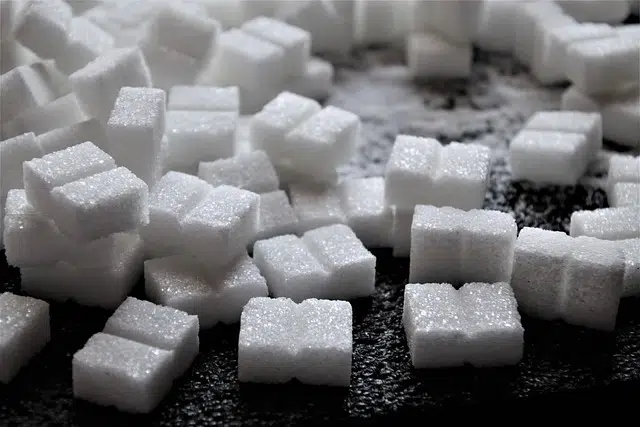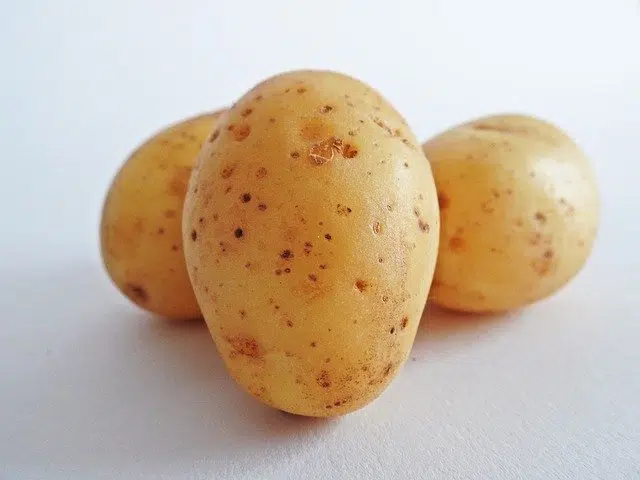
Sugar is a simple carbohydrate.
Carbohydrates , carbohydrates , carbohydrates or saccharides are organic substances composed of hydrogen , oxygen and carbon , which present the first two components in the same proportion that appears in water .
In a technical sense, the notion of carbohydrate is not very precise, because these are not hydrated carbon atoms (joined to H2O molecules), but rather these molecules are composed of carbon atoms associated with different functional groups. .
Types of carbohydrates
Carbohydrates are considered the primary form of energy storage from a biological point of view and constitute one of the three main chemical groups that make up organic matter (along with proteins and fats ). It is possible to divide carbohydrates into simple (such as sugar and honey) and compound (cereals, legumes, rice ).
There are different types of carbohydrates that fulfill various functions, such as maintaining body temperature and blood pressure, boosting neuronal activity and maintaining proper performance of the intestines, for example.

Potatoes or potatoes are foods rich in carbohydrates.
Its importance in nutrition
It is important to highlight that carbohydrates play a fundamental role in nutrition . More than 50% of the daily energy that the body requires for its proper functioning should come from carbohydrates rich in starch, such as pasta, cereals or legumes.
Fruits and vegetables are also sources of carbohydrates. These foods also provide vitamins and minerals , so it is advisable to include them in your daily diet.
Myth about carbohydrates
As we have said before, the function of this component in our diet is fundamental since it is our main source of energy . They are responsible for offering us glucose, which we must later assimilate to convert into fuel for the normal functioning of our body.
Although it is commonly believed that they are lethal if we want to maintain our figure, we need to understand that when we gain weight, what fails in our diet is not the consumption of carbohydrates, but rather the excess of calories .
We must consume the same amount of calories that we burn, that is, our diet responds to the lifestyle we lead . If we eat foods with a higher caloric level than what we burn with our exercise, then we will gain weight because our body will store that excess calorie in the form of fat. On the contrary, when we lose weight what happens is that we consume less energy than we burn, so our body has no choice but to use what is stored.
The calorie question
Regarding the amount of calories that carbohydrates provide us , we must keep in mind that there are various varieties of foods of this type, where each one provides more or less high caloric levels.
The calories that should concern us the most are those from fats because they are the most difficult for the body to assimilate and end up accumulating in reserves.
The calories from carbohydrates, especially those rich in sugar, provide us with an almost instantaneous amount of energy that can be burned immediately if we do physical exercise, but otherwise they will accumulate in reserves , unless we consume whole-grain carbohydrates. which require a much slower absorption process and therefore, their combustion is more profitable.
Carbohydrates and overweight
There are also other types of carbohydrates, which are those that provide empty calories , which only have caloric content without more; Within this classification are alcoholic, sugary drinks or those sweets that have been manufactured with refined sugars. They are the most dangerous because they accumulate most easily, contributing positively to weight gain.
Having said all this, it is worth mentioning that, although certain carbohydrates contain a high caloric level that causes weight gain, not all of them belong to this group and are extremely important for having a balanced diet . The important thing is to know what, how and how much to eat , always taking into account what activities we will do afterwards.
